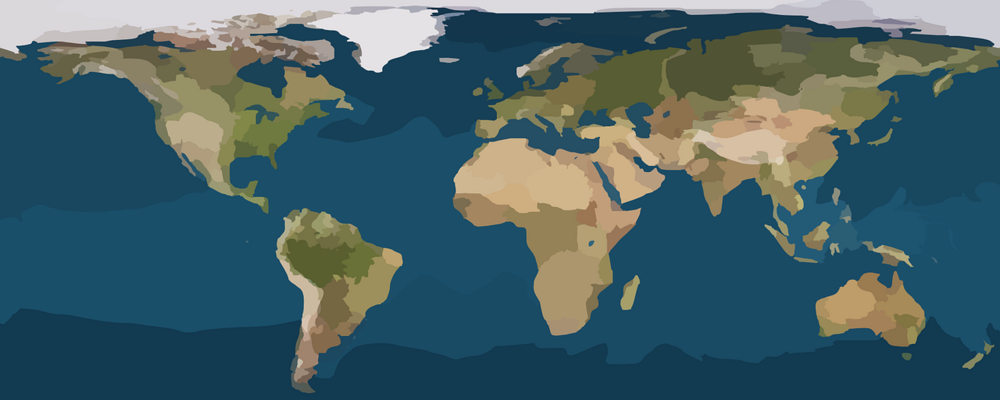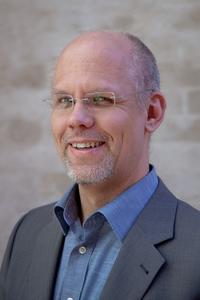
- What is a chemical?
- Are chemicals dangerous?
- How do we know if a chemical is toxic?
- How to become a chemical smart consumer
- Swedish households emit >60 000 tonnes chemicals per year
- Chemicals and the Global Goals
- The Global Goals as a starting point for discussion
- Reflections on future chemical policy following the EU-election
Chemicals concern everyone globally
There is a large number of chemicals available today and the global trade sends them around the world. If you want to learn about why chemicals matter to everyone, this is a good starting point.
What is a chemical?
A chemical is the tiniest form of matter and includes any liquid, solid or gas. Chemicals are everywhere, in everything. The air we breath, the water we drink, our bodies, food, and the clothes we wear are all made from chemicals. In each living organism, you can find about 10 000 different chemicals. In our daily lives, we use about 100 000 different chemicals or more.
Are chemicals dangerous?
Chemicals act the same, whether created by nature or by humans. Industrially produced chemicals enable good things like healthcare, food production, consumer products and infrastructure. The problem is that some chemicals are toxic and interfere with natural chemical processes in nature and within our bodies.
How do we know if a chemical is toxic?
Altogether, we are aware of roughly 100 000 000 different chemicals - and each and every hour, about 40 new chemicals are discovered. Not all of these are dangerous but one challenge is that only some 70 chemical substances are restricted and monitored in the EU. The others are unknown to us. Another challenge is that chemicals are treated one at a time when, in reality, the nature and humans are exposed to an unknown cocktail of chemicals.
Since nobody has the full understanding of the effects of all these chemicals - and what happens when we mix them - the FRAM Centre focus on risk assessment and management strategies to address the exposure to mixtures.
Read more about our research on chemical risk assessment and management strategies.
How to become a chemical smart consumer
Chemicals that affect the environment and our health can be found in everyday consumer products, e.g. in food packaging, cleaning products, textiles and shoes, electronics, or in old plastic parts.
If you want to make conscious and chemical smart choices in your everyday life, the Swedish Chemicals Agency has put together consumer advice (in Swedish only unfortunately).
In the video "Chemicals make us sicker, fatter, poorer", Dr Leo Trasande says 99% of us are affected by endocrine disruption chemicals and low levels of exposure matters. He also says medical conditions like obesity, ADHD, diabetes, breast cancer and testicular cancer are all related to such chemicals.
Lead is one of ten chemicals of major public health concern according to WHO, says Sara Brosché in the video "No safe limits for lead exposure". She also says that lead damages the brain irreversible and the damages cannot be treated.
ENVIRONMENTAL GOALS
WHAT IS REACH?
REACH is a European Union regulation concerning the Registration, Evaluation, Authorisation and restriction of Chemicals. Manufacturers and importers are required to gather information on the properties of their chemical substances, which will allow their safe handling, and to register the information in a central database in the European Chemicals Agency (ECHA).
Read more about REACH on the ECHA website.
Find the list of substances restricted under REACH on the ECHA website.
Swedish households emit >60 000 tonnes chemicals per year
We have predicted emissions of chemicals from households into wastewater based on consumption patterns from multiple data sources. All in all, 2007 different chemicals were included. The result shows that Swedish households emit 62,659 tonnes per year – or 18 g/person and day.
Chemicals and the Global Goals
In 2015, world leaders agreed to 17 Global Goals for Sustainable Development (SDGs). These goals are set to create a better world by 2030.
Chemical development plays a critical role in almost all the goals, but they play a dual role. On the one hand they are helping us to achieve those goals, like using fertilizers and pesticides to reach the SDG2 "Zero hunger". On the other hand, they are a risk for goals like SDG 3 "Good health and well-being", SDG14 "Life below water", or SDG15 "Life on land".
Chemicals are mentioned in SDG 12 "Sustainable consumption and production", target 12.4: By 2020, achieve the environmentally sound management of chemicals and all wastes throughout their life cycle, in accordance with agreed international frameworks, and significantly reduce their release to air, water and soil in order to minimize their adverse impacts on human health and the environment.
The Global Goals as a starting point for discussion
Do we need a new international Sustainable Development Goal about chemicals, similar to the Swedish goal of a “non-toxic environment”? The video "Chemicals - an ignored sustainable development goal" is a shorted version, recorded at the International Science Festival in Gothenburg 2019. The experts that are participating in the video are Anna Lennquist from ChemSec, Bethanie Carney Almroth from the University of Gothenburg, Magnus Nydén from Nouryon, and FRAM researchers Thomas Backhaus and Åsa Arrhenius from the University of Gothenburg.
In the video from the FRAM seminar "Time to reflect on a chemical-safe world", Prof. Åke Bergman addresses chemicals in relation to the complex grid in which they play a role in the development of sustainability. The presentation is related to the majority of the SDGs in which chemicals are of key importance. Åke Bergman is a Senior professor at Stockholm University, Guest professor at Örebro University and Chair Researcher at Tongji University in Shanghai.
Chemicals and the Global Goals
Reflections on future chemical policy following the EU-election
Thomas Backhaus, Director of the Institute for Environmental Research (RWTH), shares his thoughts in light of the result of the recent election.
Navigating European Chemical Policy Post-Election: Why Academic Scientists Should Engage
Even before the European election it was evident that several policies related to protecting the environment and/or human health from chemical pollution were severly delayed, watered down or even taken off the table completely, for example the revision of REACH, the common agricultural policy, and the goal to cut pesticide use by half under the Sustainable Use Regulation. The political shift to the right in the recent EU elections, although somewhat moderated by strong performances from left/green parties in Scandinavia, raises concerns that this trend may continue or even worsen. The new European Parliament and the Commission may lack the committment to develop new pollution-related initiatives, or even to implement those policies that are already in the pipeline. For instance, Manfred Weber, leader of the European People's Party (EPP, one of the centre-right winners of the election) is already now working actively opposing the proposed ban on combustion engines. Nevertheless, the final approval of the Nature Restoration Law on the 17th of June by the EU Council of Environmental Ministers offers a glimmer of hope. Fortunately.
However, relying solely on individual politicians, such as Austrian Environmental Minister Leonore Gewessler, to consistently champion such causes would be naive.
Major issues related to EU chemical policy are already on the table or on the horizon. The long-overdue REACH revision has yet to be published by the Commission, which also faces a decision on the PFAS restriction proposal expected by the European Chemical Agency (ECHA) in 2025-26. Furthermore, the EU Council has already begun negotiations with the Parliament on the "one substance one assessment" package which includes work on Regulations that are supposed to foster cooperation among EU's agencies in the area of chemicals as well as Regulations on establishing a common data platform on chemicals.
The fate of these and other chemical-related initiatives will be determined largely in technical discussions that will shape the annexes, guidance documents, and implementation strategies of the various regulations. And one might expect extensive stakeholder involvement in all these discussions. It is therefore of paramount importance that also academic environmental scientists, as experts that are generally less affected by institutional conflicts of interest, actively request a seat at the table. Rather than observing from the sidelines, we should engage, present data, help decision makers to confront uncomfortable truths and point to the consequences of inaction or misguided actions.
Involvement in this kind of work demands a substantial investment of time, efforts and energy. It is therefore imperative that such activities also count towards the career progression of academic scientists. I mean, it is of course always valuable to publish another set of empirical data, a new ecosystem assessment or to develop new in silico models. But wouldn't it be even more rewarding to put all this work to use in a political context, so that it can add to shaping future chemical policy, with the ultimate aim of a non-toxic environment for all?
